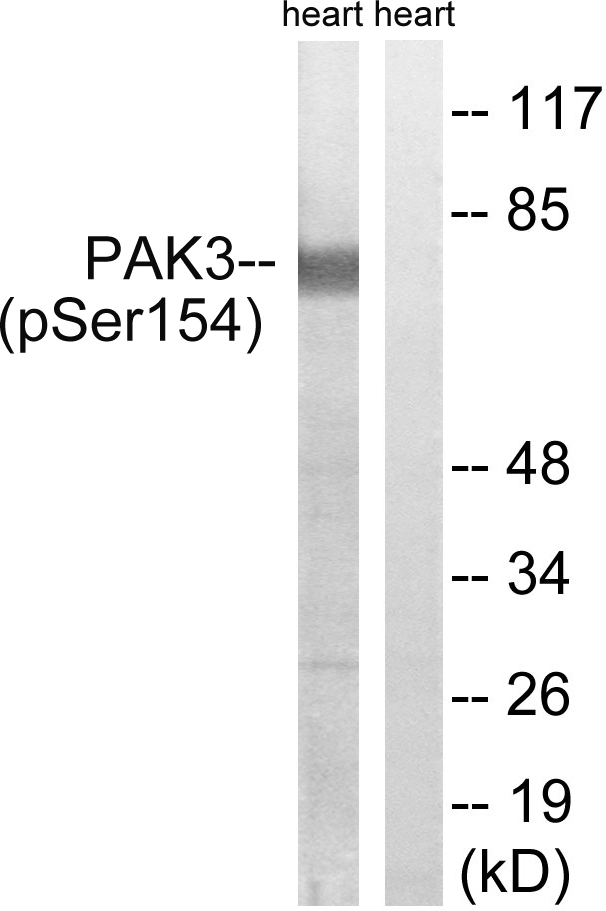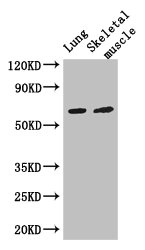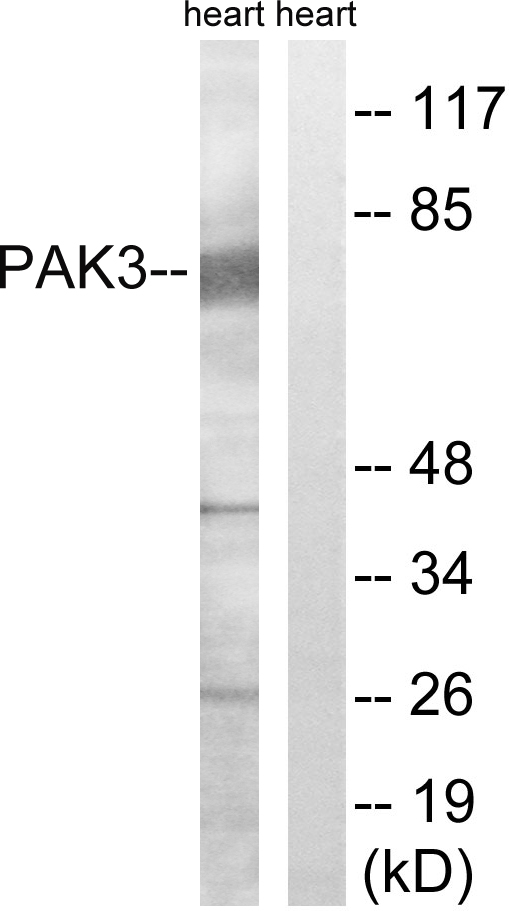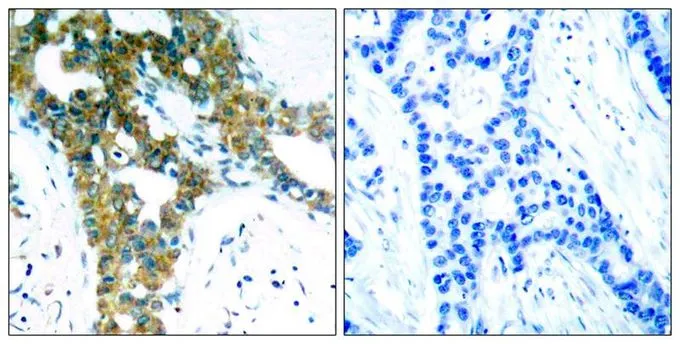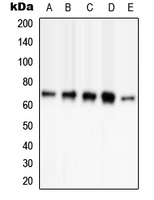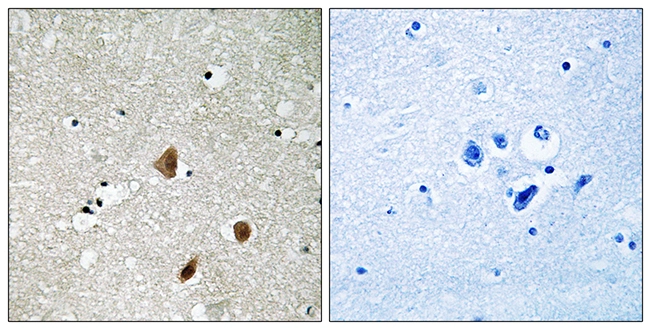
IHC-P analysis of human brain tissue using GTX86634 PAK3 (phospho Ser154) antibody. The picture on the right is blocked with the synthesized peptide.
PAK3 (phospho Ser154) antibody
GTX86634
ApplicationsWestern Blot, ImmunoHistoChemistry, ImmunoHistoChemistry Paraffin
Product group Antibodies
ReactivityHuman, Rat
TargetPAK3
Overview
- SupplierGeneTex
- Product NamePAK3 (phospho Ser154) antibody
- Delivery Days Customer9
- Application Supplier NoteWB: 1:500~1:1000. IHC-P: 1:50~1:100. *Optimal dilutions/concentrations should be determined by the researcher.Not tested in other applications.
- ApplicationsWestern Blot, ImmunoHistoChemistry, ImmunoHistoChemistry Paraffin
- CertificationResearch Use Only
- ClonalityPolyclonal
- ConjugateUnconjugated
- Gene ID5063
- Target namePAK3
- Target descriptionp21 (RAC1) activated kinase 3
- Target synonymsARA, MRX30, MRX47, OPHN3, PAK-3, PAK3beta, XLID30, bPAK, beta-PAK, serine/threonine-protein kinase PAK 3, adriamycin resistance-associated, oligophrenin-3, p21 (CDKN1A)-activated kinase 3, p21 protein (Cdc42/Rac)-activated kinase 3
- HostRabbit
- IsotypeIgG
- Protein IDO75914
- Protein NameSerine/threonine-protein kinase PAK 3
- Scientific DescriptionPAK proteins are critical effectors that link Rho GTPases to cytoskeleton reorganization and nuclear signaling. PAK proteins, a family of serine/threonine p21-activating kinases, serve as targets for the small GTP binding proteins Cdc42 and RAC and have been implicated in a wide range of biological activities. The protein encoded by this gene forms an activated complex with GTP-bound RAS-like (P21), CDC2 and RAC1 proteins which then catalyzes a variety of targets. This protein may be necessary for dendritic development and for the rapid cytoskeletal reorganization in dendritic spines associated with synaptic plasticity. Defects in this gene are the cause of non-syndromic mental retardation X-linked type 30 (MRX30), also called X-linked mental retardation type 47 (MRX47). Alternatively spliced transcript variants encoding different isoforms have been identified. [provided by RefSeq, Jul 2008]
- ReactivityHuman, Rat
- Storage Instruction-20°C or -80°C,2°C to 8°C
- UNSPSC12352203

